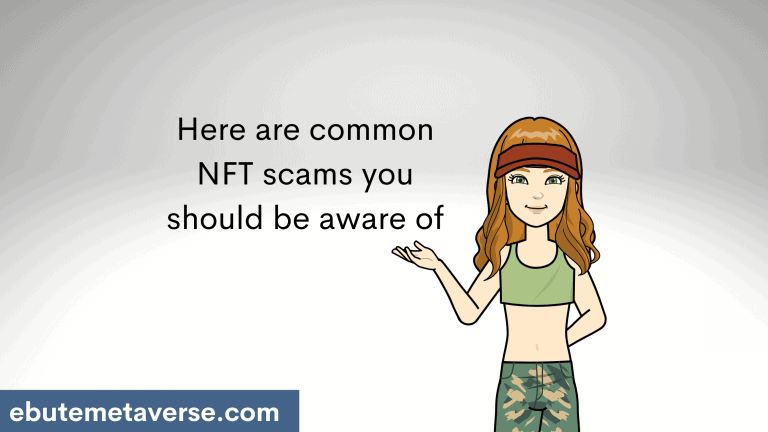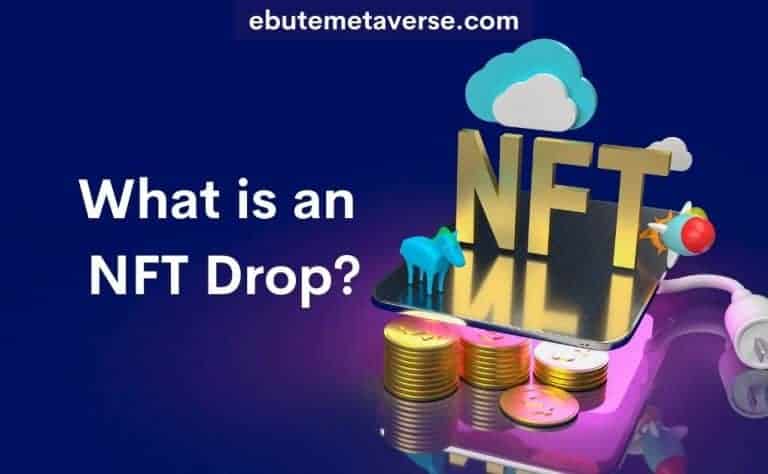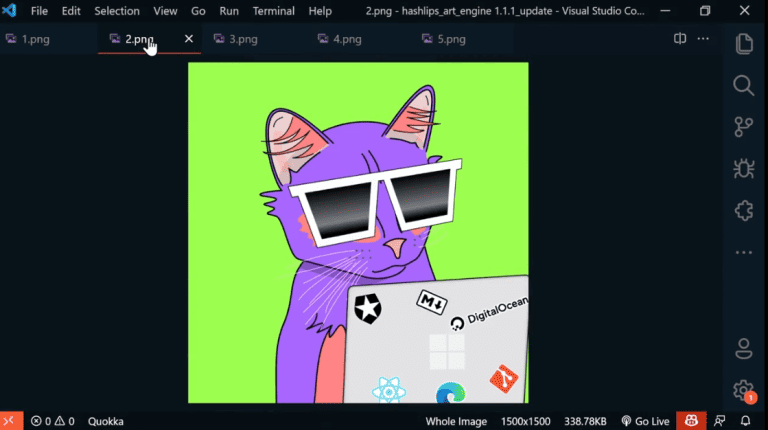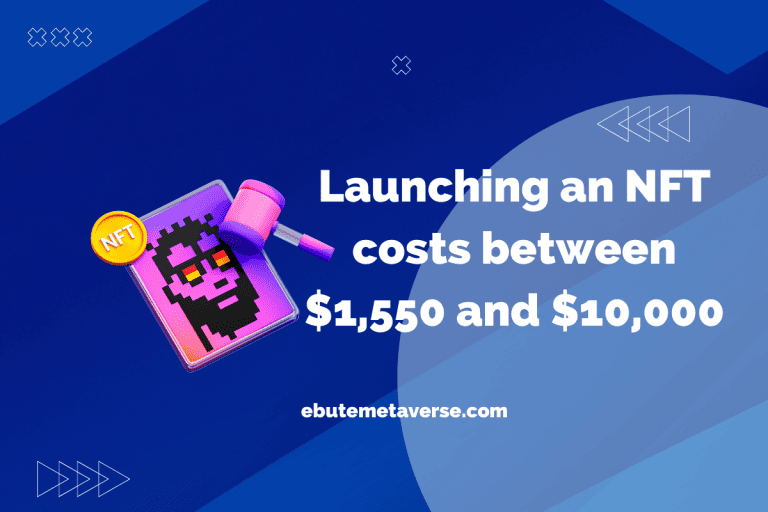How Long Should You Hold An NFT [And The Best Time to Sell]
Timing is vital for any NFT buyer to succeed; however, the question, “how long should you hold an NFT” is subjective to many factors.
How long you should hold an NFT usually depends on your type of NFT buyer or your trading strategy. Whether you’re flipping NFT or going long-term would affect the holding period. For a long-term plan in NFTs, you’ll need to hold it for at least a year.
We’ll go in-depth on what holding NFT means, what type of NFTs you should hold for a long time, and the ideal time to sell your NFT.
How Long Should You Hold an NFT?
![How Long Should You Hold An NFT [And The Best Time to Sell] 3 how long to hold nft](https://ebutemetaverse.com/wp-content/uploads/2022/09/how-long-to-hold-nft-1024x858.jpg)
There’s no ultimate timing for holding NFTs that guarantees maximum profit. As with any trading, the maxim “sell high and buy low” should be followed when keeping NFTs. How long you should hold an NFT would depend on your preferences.
When you see that the overall worth of your NFTs has increased and you can sell them for a respectable profit, we recommend that you do so.
Ensure that the NFT you own is in demand and that you can sell it. Due to gas surcharges or the fact that producers buy and sell their own NFTs by cycling them through other independent wallets of their own, many NFTs have experienced “boosts” in value.
Check an NFT’s history before purchasing it to see if its value has “increased” naturally over time. Making the market aware that you are willing to sell your NFT is necessary to sell an NFT (which is in demand). Sell only when it is profitable, and consider potential gas fees so you won’t have any surprising moments.
Now that we’ve answered the question, “how long should you hold an NF?” let’s get familiar with the basics of NFT and what it means to hold NFT collectibles for the long term.
What Does Long-Term NFT Collecting Mean?
When collecting NFTs, you must be aware of the notion of a “long-term” investment. The key to success in trading NFT is deciding what counts as “Short-term” and “Long-term.”
Holding an NFT for the long-term is when you buy a digital collectible, de-list it from the market (i.e., it cannot be purchased, sold, traded, or otherwise transferred), and save it in a smart wallet for at least a year (or longer).
The reason why you’ll want to hold your NFT for a long period is because of a potential increase in the value of the NFT — there’s no guarantee of this, though.
Most of the time, collectors who decide to go down the long-term route aren’t concerned with an NFT’s overall value; they see the potential long-term profits as a bonus to the fun of collecting digital collectibles.
Why Should You Hold NFTs for a Long Term
![How Long Should You Hold An NFT [And The Best Time to Sell] 4 buy 1 1](https://ebutemetaverse.com/wp-content/uploads/2022/09/buy-1-1-1024x858.jpg)
One of the major concerns of newbie collectors when buying non-fungible tokens is whether it’s advisable to HODL an NFT, leading to the question, “how long should you hold an NFT?”. Depending on the answer, they determine whether or not to jump into non-fungible tokens.
Holding NFT is profitable if it has long-term utility and applications. However, you need to focus on the big picture, and the potential NFTs offer in the future instead of being profit-driven.
There are some cases where holding on to an NFT can be bad. For instance, when an NFT project is progressing too slowly or advancing too quickly. The former is most likely to fail in the long run, while the latter will attract attention that quickly fades, which makes both bad for holding long-term.
A lack of supply can also cause the market to crash and lower overall demand (and interest).
Which NFT Will Survive Long-term?
Those NFT collections with robust communities, the most outstanding utilities, and consistently delivering on their roadmap will be the most resilient.
The risk is higher for those who don’t do this or don’t have this competitive edge.
You can still find NFT initiatives with all three characteristics: strong communities, top utilities, and delivering on their promises. However, nobody can predict which specific NFT projects will be successful in the long run.
These nft projects have the highest chance of surviving long term:
Are NFTs Good Long-Term Investments?
Even if you buy from the most respected artist on the most respectable marketplace, purchasing a non-fungible token carries some risks. We don’t recommend you buy an NFT as an investment. This move would be equivalent to purchasing Pokemon cards with your retirement money. One of them might be valuable in the future, but it’s implausible.
Instead, acquiring NFTs only makes sense if you intend to utilize them, for instance, by using an NFT to represent an object in a play-to-earn game. Your ability to transfer the asset outside the game and conduct peer-to-peer trades with other players is made possible by packing it into this non-fungible token structure. That is an authentic NFT use case.
It is exceedingly difficult to forecast which specific NFT from a well-known artist or creator will be the most valuable, just as it is practically impossible to predict if the value will increase in the future.
However, you should only purchase NFT artworks if you believe the piece has artistic value and not just for the potential of future financial gain. I wouldn’t bet on selling it for a profit, but like with any transaction, buyers should consider if they get excellent value for the money in terms of how much an NFT is worth.
Although making a profit is still possible, it shouldn’t serve as your primary motivation.
Bottom Line
![How Long Should You Hold An NFT [And The Best Time to Sell] 5 how long should you hold you nft](https://ebutemetaverse.com/wp-content/uploads/2022/09/how-long-hold-nft-1024x576.jpg)
It would be better to know exactly what you are buying before purchasing from an NFT marketplace. Knowing what you are buying with your hard-earned money is crucial because 98% of NFTs will most likely be utterly worthless in the long term.
No matter what, you must always do your research before purchasing an NFT. It’s crucial to determine how long you should hold an NFT or whether you should buy one in the first place.
Also, remember that when you purchase an NFT to profit only, you are investing in the person or people who created it. And if you decide to hold the coin, you’re making a bet that the project’s crew will produce the intended results.

![How Long Should You Hold An NFT [And The Best Time to Sell] 1 how long should you hold you nft](https://ebutemetaverse.com/wp-content/uploads/2022/09/how-long-hold-nft.jpg)
![How Long Should You Hold An NFT [And The Best Time to Sell] 2 Special Offer](https://ebutemetaverse.com/wp-content/uploads/2025/07/offer-1.png)

![Best NFT Creator App for iPhone: Top 16 [Updated] 8 Best NFT Creator App for iPhone: Top 16 [Updated]](https://ebutemetaverse.com/wp-content/uploads/2023/05/best-NFT-Creator-app-for-iphone-1-768x512.png)

![Can You Get NFTs for Free? Top 10 Ways [Free Mints, Giveaways, and More] 12 Can You Get NFTs for Free? Top 10 Ways [Free Mints, Giveaways, and More]](https://ebutemetaverse.com/wp-content/uploads/2022/11/get-nfts-for-free-768x432.png)

